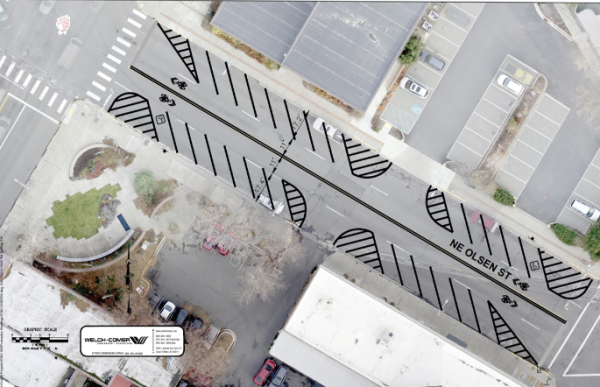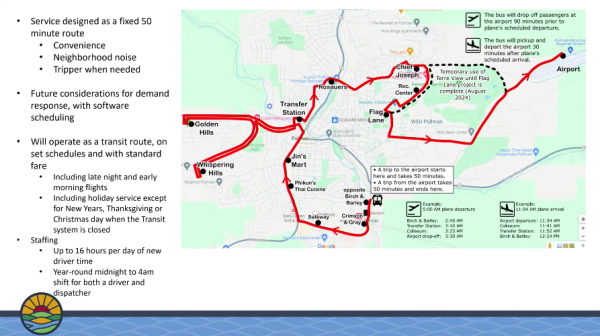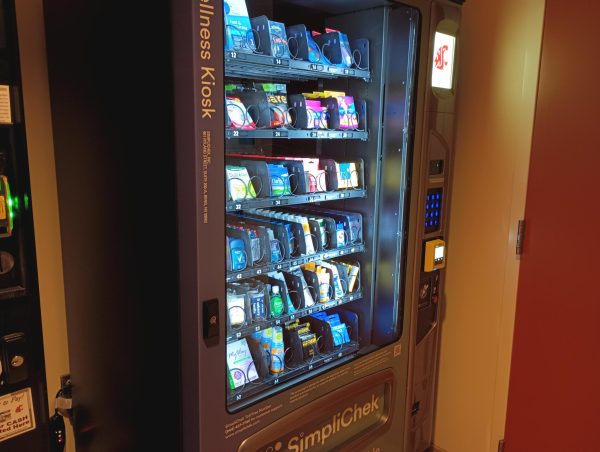Coug Bikes see high ridership in first few weeks
WSU will dole out over $100,000 to maintain new system on campus
ANA MARIA ALANIZ MENDOZA | THE DAILY EVERGREEN
Donald Schmitt, UREC coordinator of Coug Bikes, discusses the success of the new bike share program Tuesday.
June 28, 2018
Coug Bikes, WSU’s new bike share program that launched on June 1, has been well received by the community.
The service has amassed over 500 active members, who have collectively rode over 2,000 miles, according to data collected by the Outdoor Recreation Center.
“I’d say it’s been very positive so far, almost more usage than expected,” Donald Schmitt, UREC coordinator of the rental shop and Coug Bikes, said.
WSU’s previous bike sharing program, Green Bike, started in 2008. It originally allowed students to check out bikes in person from certain locations on campus. In 2010, WSU signed a contract with Bixi Bike, one of the original national electronic bike sharing programs, which operated bikes in major cities like Washington D.C., New York, Chicago and Boston.
However, for the last two or three years, the Green Bike system fell into disrepair with little to no ridership since many kiosks were broken. WSU was no longer getting technical support from Bixi Bike after the Montreal-based company filed for bankruptcy in 2014 as well, Schmitt said.
WSU began the process of moving to another system and was looking for one that was more user friendly 18 months ago, Schmitt said.
Out of several companies who submitted proposals to WSU, two companies came to campus to give presentations; Gotcha Bike and BCycle. In April, WSU signed with Gotcha Bike, and within two months installed six new bike stations and brought in 50-plus new bikes, Schmitt said.
Gotcha, which operates on over 20 college campuses, was chosen because of its familiarity with the market, a lower startup cost and its user interface, Schmitt said.
“There’s a lot more functionality in being an app-based system versus the old kiosk system,” he said. “What you can do is when you walk out of class you can open up the app and see the nearest bike to you live in real time.”
WSU will now pay $120,000 per year to Gotcha to maintain the Coug Bike system with software updates, bike parts, maintenance and everything in between. WSU also paid an additional one-time startup fee of $40,000 to update WSU’s infrastructure, he said. These funds come from the UREC’s budget which is made up of revenues and student fees.
Beyond the first four hours of use every day, which are free, student members pay $5 per hour. The system also charges the user a flat rate when a bike is not left at a designated station, $5 for on-campus and $25 for off-campus checkouts. This is a change from Green Bikes, which charged $5 per day for an unreturned bike.
Schmitt said these fees are meant to be more of a deterrent from abusing the system than to collect revenue. The money from fees is collected by Gotcha and goes in a pool which they then use pay WSU to repair the bikes.
He said, however, both WSU and Gotcha aren’t expecting this money to amount to much and that only if it reaches a certain cap will some go back to WSU.
“I think the biggest thing we’re all a little impressed with is the amount of [ridership] so far,” he said. “It’s definitely been a little bit higher than expected, even with a lot of our student body gone for the summer.”
Helmets are available for free check out at the Student Recreation Center, ORC and Chinook.






















